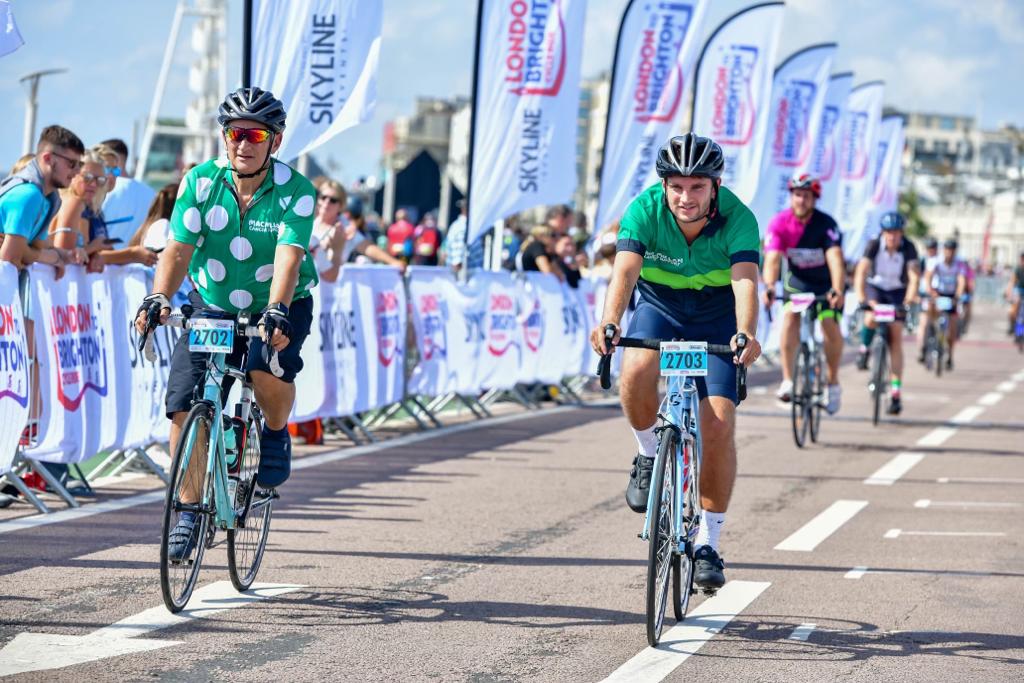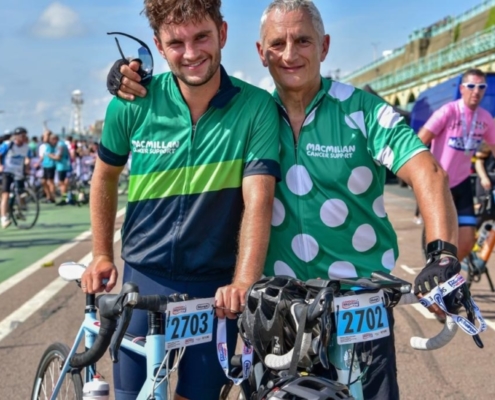The importance of recovery after exercise
Why is recovery so important?

Recovery After Exercise
On Sunday 11th September my son and I cycled the 55mile London to Brighton route. And we were very pleased to raise just under £3000 for Macmillan while we did so. I’m generally a fair-weather cyclist (and Peleton owner) so I trained for the ride beforehand and felt appropriately pleased/relieved/satisfied as I crossed finish line.
But what now? How best to help my body recover from what – for me – was a significant challenge?
My top tips recovery after exercise:
Rest
After a significant challenge it’s important to be kind to your body. Plan ahead and make sure you allow time to be still and to catch up on sleep. The day of the ride was a long one. We left the house at 6.30am and got home 12 hours later. One Sunday evening the sofa was my friend, and I felt no guilt about that! I also awarded myself an early night and a couple more after that. As you fall into the deeper stages of sleep, your muscles see an increase in blood flow, which brings oxygen and nutrients that help recover and repair muscles and regenerate cells. So, getting enough shut eye is vital for recovery.
Hydrate
It’s important to replace the fluids you’ve lost during exercise. This helps your muscles to recover. But, tempting though it might be to reward your achievement with a glass of wine, I’s best to stick to water. Alcohol is a diuretic, which means it actually removes water from your body.
Nutrition
After completing a physical challenge you could be forgiven for thinking it’s an ideal time to give in to those less healthy food cravings!! But before you reach for the junk, bear in mind that two words – refuel and rebuild! When it comes to refuelling, carbs are your friend. And taking them on board stops the body from looking for energy from elsewhere – such as those poor muscles that you’ve just worked! So, then it’s about rebuilding. And that’s where protein comes in. Protein helps repair exercise-induced damage to tissues and may help speed up the impact of the carbohydrates.
Osteopathy
At the heart of Osteopathic principles, blood flow is considered ‘supreme’ – this will aid in a decrease in inflammation, assist blood flow, and help muscles recover after intense exercise. Plus, it feels like a very well-deserved post challenge treat!
Active recovery
Active recovery improves blood circulation that helps with the removal of waste products from muscle breakdown that build up as a result of exercise. It takes the form of low intensity exercise such as walking, swimming or yoga. These are a great way to keep those tired muscles moving without over working them. But it’s important to listen to your body. And to remember that an absence of symptoms isn’t the same as the body being healed.
Set a new goal
OK, so if I’m honest I haven’t done this yet! But after the euphoria of completing a challenge it’s not uncommon to suffer a come down. A good antidote can be planning a new challenge. It doesn’t have to be bigger or better. Or even in the same field. But goal setting can be motivational when it comes to exercise and – with winter approaching – we all need a reason to get us off the sofa!
What can an osteopath help with?
If you’ve just completed a physical challenge – or are currently training for one – then why not book an appointment so we can make sure that everything is in alignment?




Leave a Reply
Want to join the discussion?Feel free to contribute!